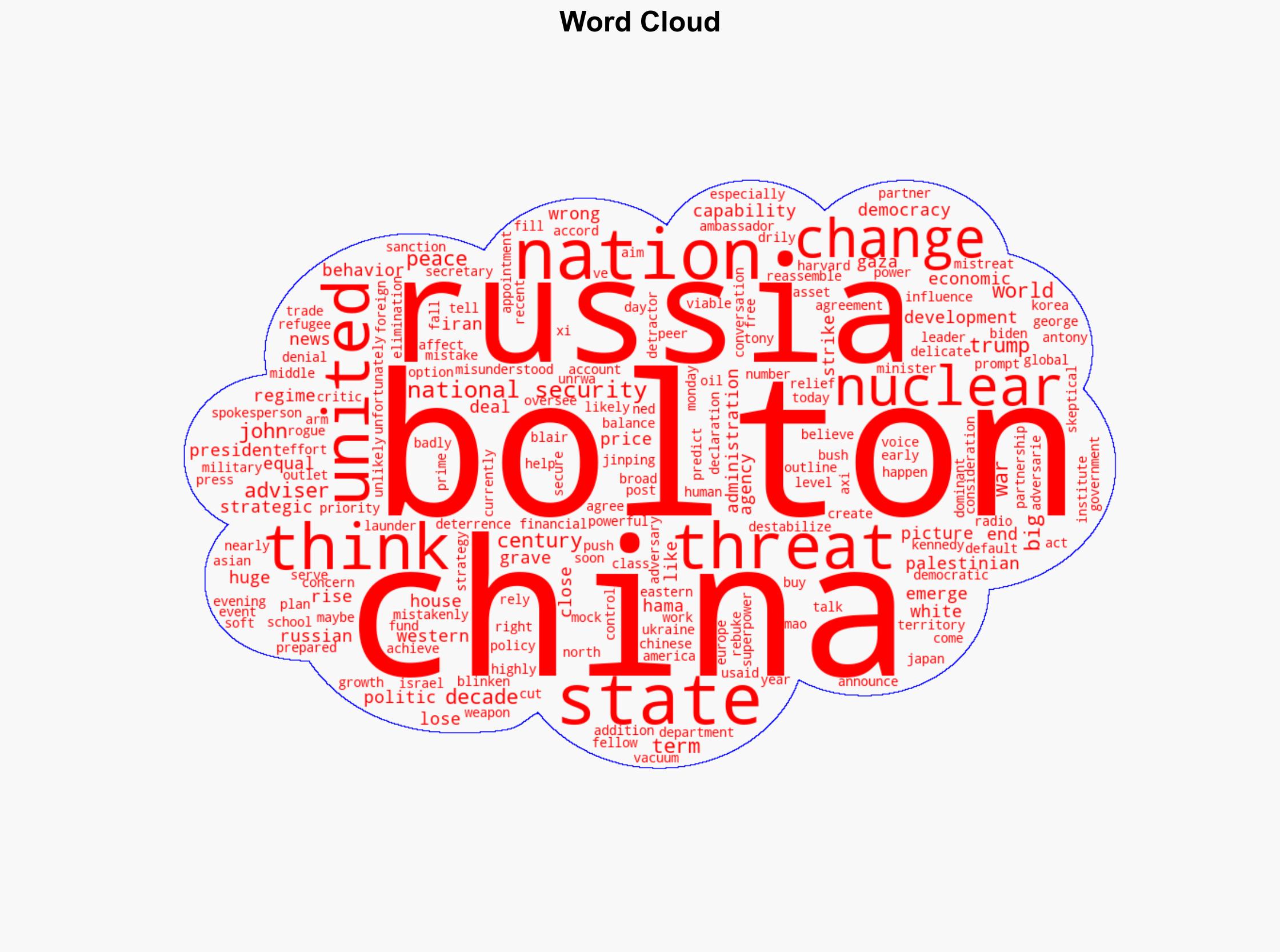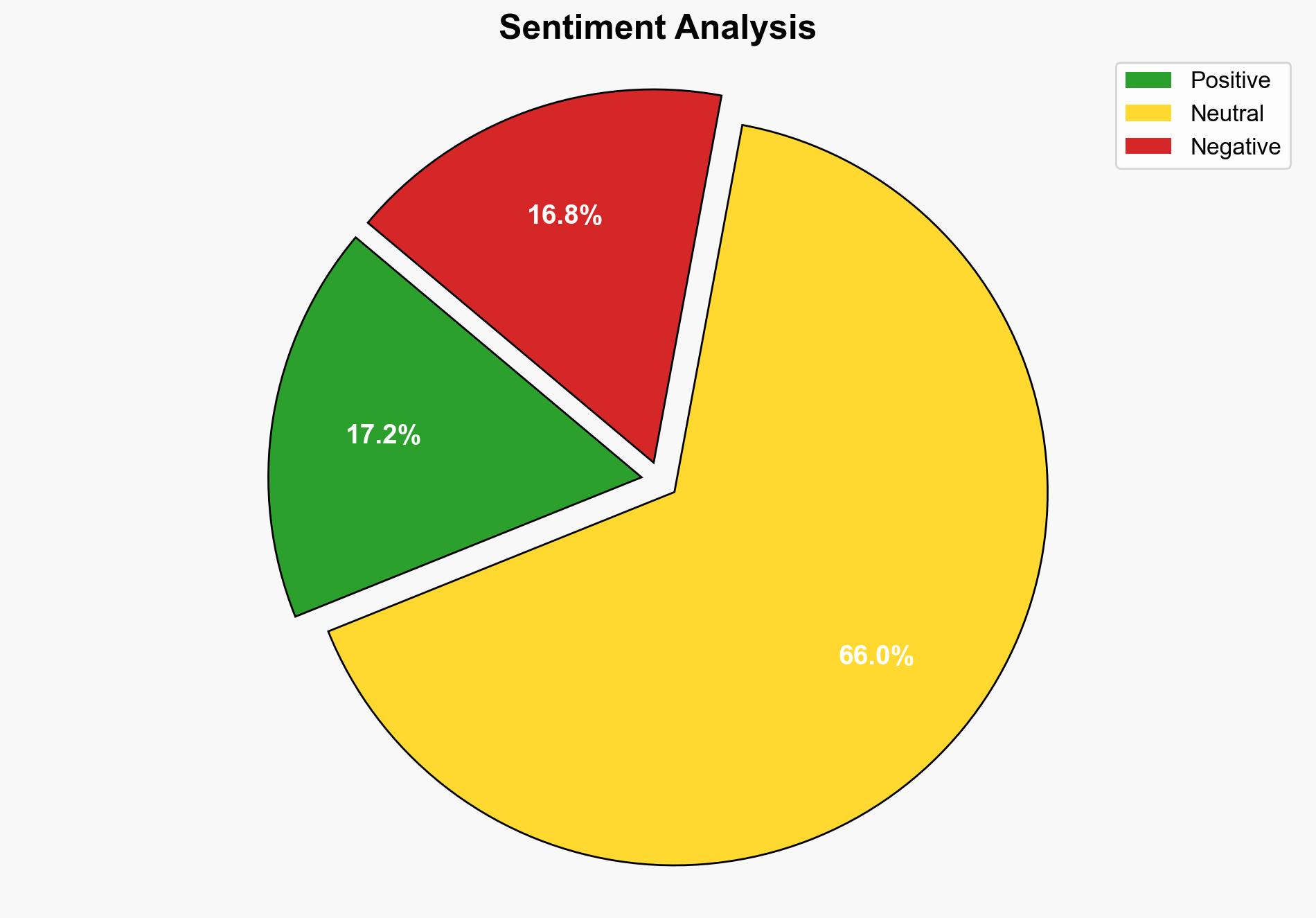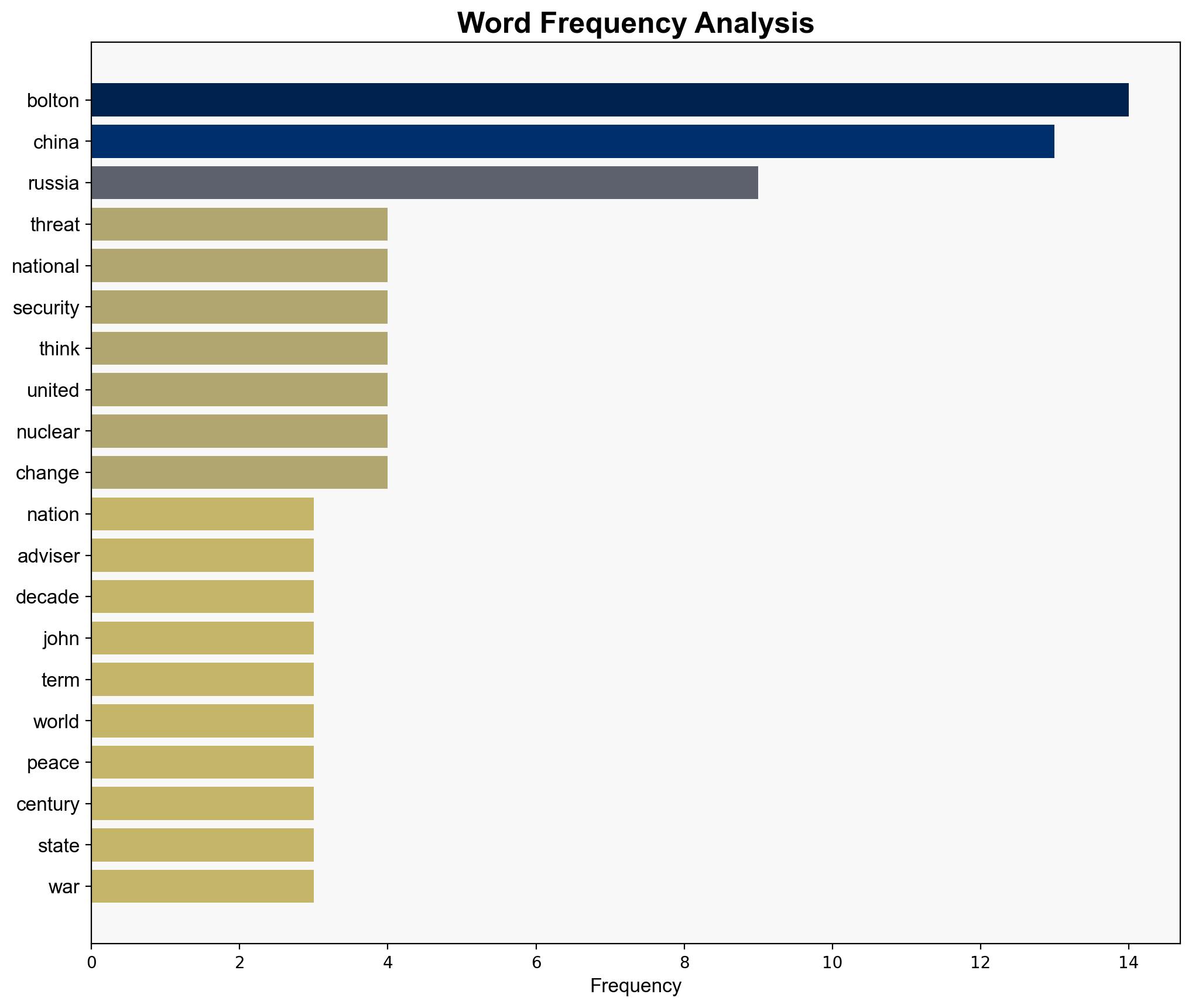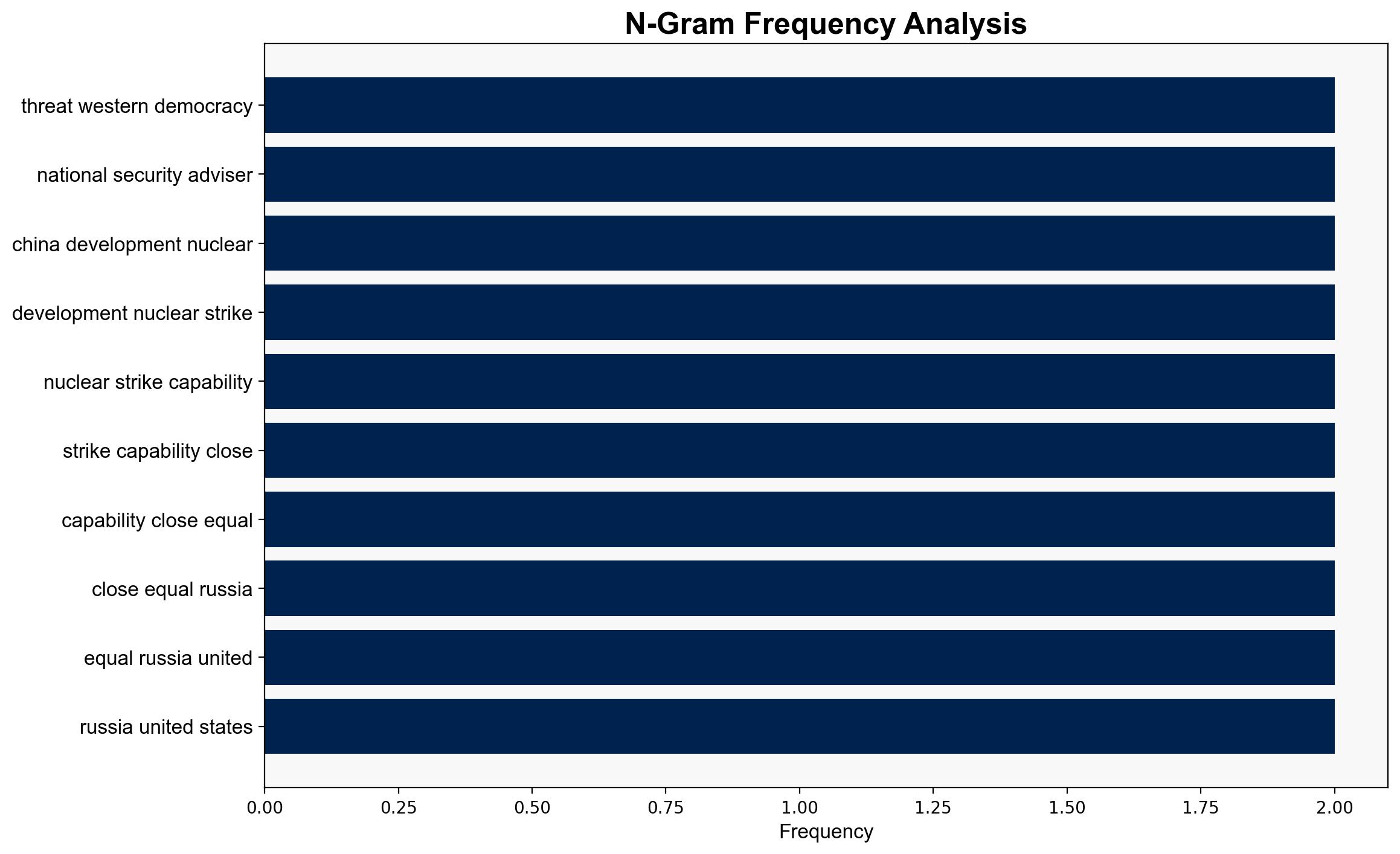US just didnt get China Bolton says – Harvard School of Engineering and Applied Sciences
Published on: 2025-10-01
Intelligence Report: US just didnt get China Bolton says – Harvard School of Engineering and Applied Sciences
1. BLUF (Bottom Line Up Front)
The analysis suggests that the United States has underestimated the strategic threat posed by China’s economic and military rise. The most supported hypothesis is that China’s development, particularly its nuclear capabilities, poses a significant challenge to global stability. Confidence level: Moderate. Recommended action: Reassess and strengthen US strategic policies towards China, focusing on military deterrence and economic countermeasures.
2. Competing Hypotheses
1. **Hypothesis A**: The United States has fundamentally misunderstood China’s strategic intentions, underestimating its military and economic ambitions, which could destabilize global power balances.
2. **Hypothesis B**: The perceived threat from China is overstated, and the real issue lies in the US’s failure to adapt its foreign policy to a changing global landscape, rather than China’s actions themselves.
Using ACH 2.0, Hypothesis A is better supported due to evidence of China’s nuclear capability development and strategic partnerships with Russia, North Korea, and Iran, which align with Bolton’s assertions.
3. Key Assumptions and Red Flags
– **Assumptions**: Hypothesis A assumes China’s intentions are aggressive and expansionist. Hypothesis B assumes the US’s strategic missteps are the primary issue.
– **Red Flags**: Bolton’s personal biases and historical skepticism towards China could color his analysis. Lack of direct evidence linking China’s actions to immediate threats could indicate overestimation.
– **Blind Spots**: Potential underestimation of China’s soft power strategies and economic influence.
4. Implications and Strategic Risks
– **Geopolitical Risks**: Increased tensions in Asia-Pacific, potential arms race.
– **Economic Risks**: Disruption in global trade if US-China relations deteriorate.
– **Cybersecurity Risks**: Potential for increased cyber espionage and attacks.
– **Psychological Risks**: Heightened public fear and mistrust of China could impact diplomatic relations.
Strategic risks include the possibility of miscalculation leading to military conflict, and the erosion of US influence in Asia.
5. Recommendations and Outlook
- Enhance military readiness and alliances in the Asia-Pacific region.
- Engage in diplomatic efforts to establish clear communication channels with China to prevent miscalculations.
- Invest in cybersecurity infrastructure to protect against potential threats.
- Scenario Projections:
- Best Case: Improved US-China relations through diplomatic engagement and mutual agreements.
- Worst Case: Escalation into military conflict due to misinterpretation of intentions.
- Most Likely: Continued strategic competition with intermittent diplomatic engagements.
6. Key Individuals and Entities
– John Bolton
– Xi Jinping
– Ned Price
7. Thematic Tags
national security threats, geopolitical strategy, military deterrence, US-China relations





